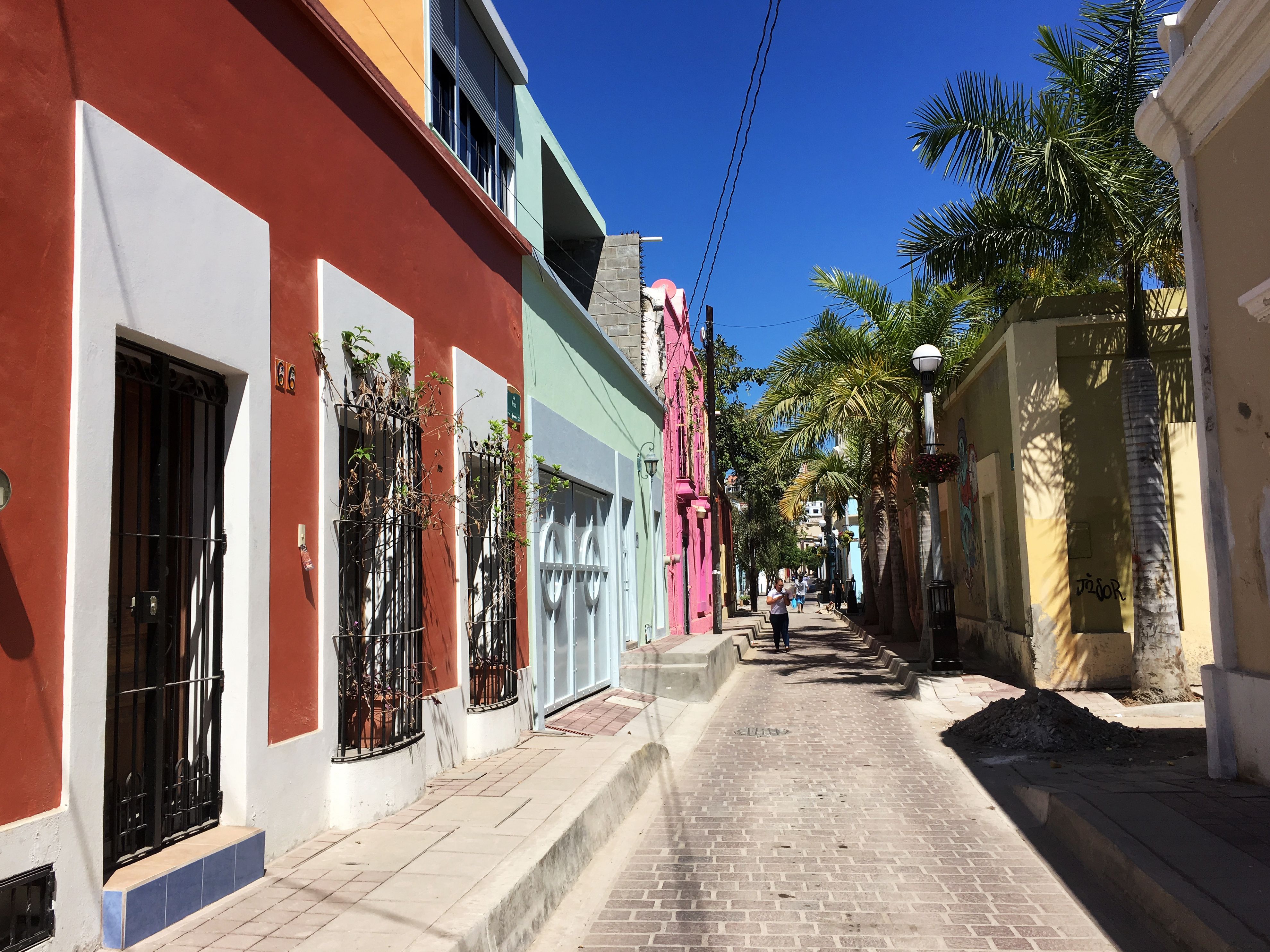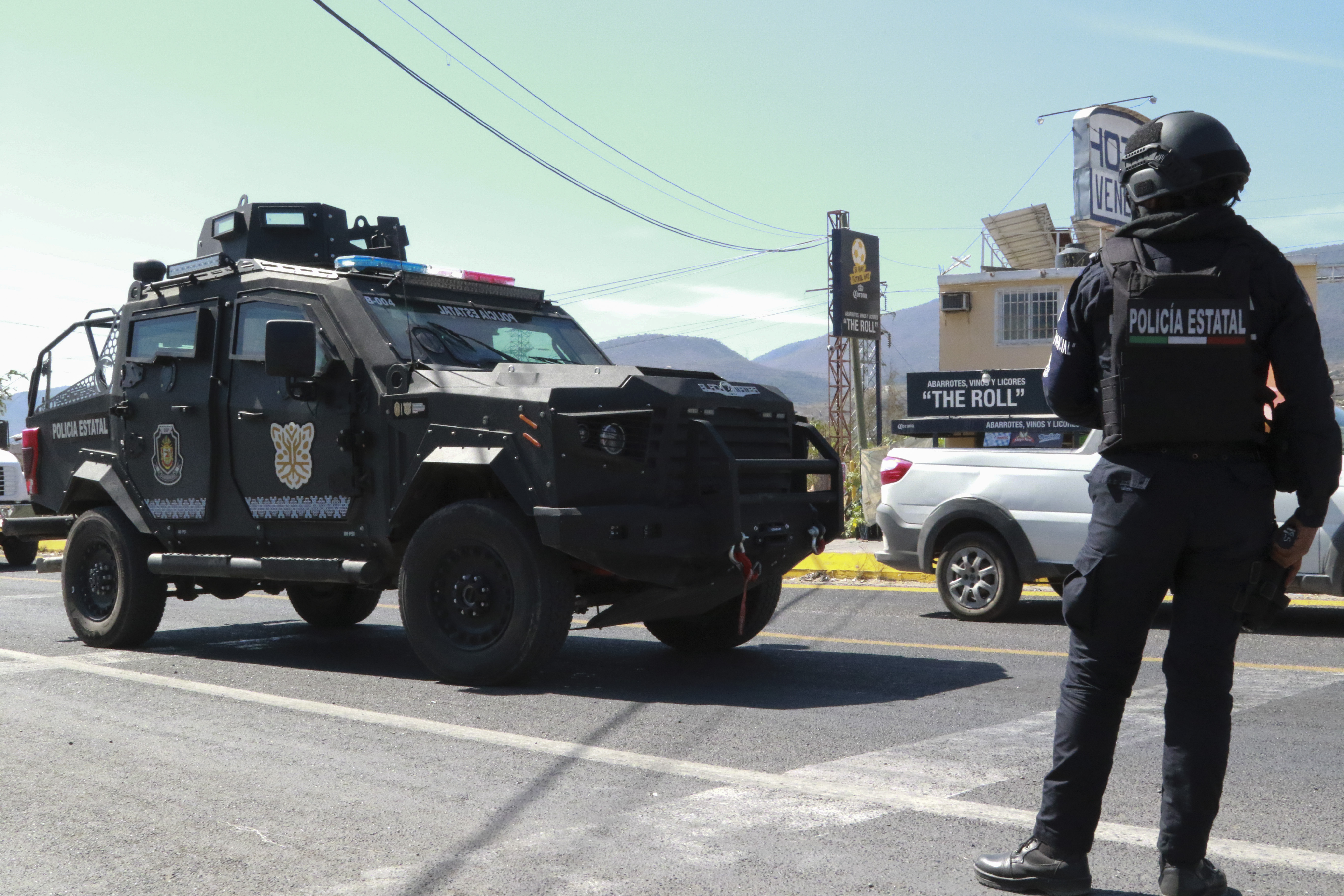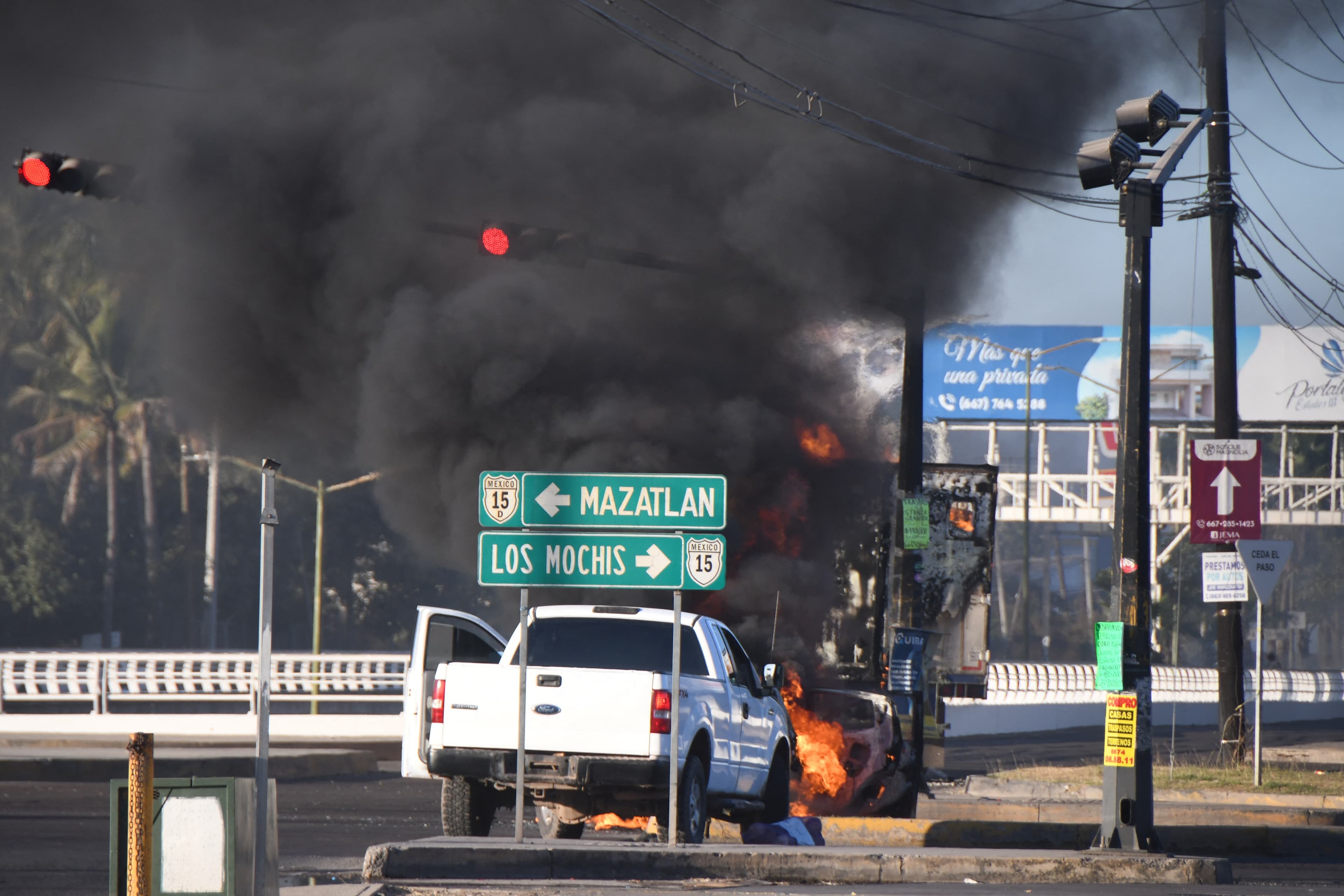The violence in Culiacán, Sinaloa, has escalated to a shocking degree, with over 20 lives claimed in less than a day as rival factions of the Sinaloa Cartel unleash chaos on the streets. This harrowing situation is not just a tragic statistic; it is a stark reminder of the systemic failures in governance and law enforcement that have allowed such brutality to flourish unchecked.
Unprecedented Violence Unfolds
According to NPR, the bodies of four decapitated individuals were discovered hanging from a freeway bridge, a grotesque spectacle that exemplifies the depths of cartel violence in the region. Just hours later, 16 more victims were found, all male, crammed into a white van, illustrating the alarming frequency with which such acts of violence occur. This is not an isolated incident; daily life in Culiacán is punctuated by gunfire, closed businesses, and shuttered schools.
Government Response is Inadequate
The response from local authorities, as reported by Reuters, has been characterized by a desperate attempt to restore order through militarization. Feliciano Castro, a spokesperson for the Sinaloa government, acknowledged the need for a reevaluation of strategies to combat organized crime amid the alarming rise in violence. Despite these sentiments, most residents express a palpable sense of abandonment and fear, indicating that the authorities have lost control.

In Mexico, history-rich Mazatlan offers equal proximity to ...
Cartel Warfare and Its Economic Impact
The ongoing conflict between Los Chapitos and La Mayiza factions has transformed Culiacán into a battleground, severely impacting the local economy. According to the Gordon Institute, the economic implications of cartel violence are profound, as businesses are forced to close their doors, and potential investors shy away from a city steeped in bloodshed. The citizens of Culiacán are left to navigate a precarious existence, where the fear of violence dictates their daily lives and limits their economic opportunities.
A Cycle of Violence and Impunity
The roots of this violence can be traced back to failed drug policies and a lack of accountability for those in power. The kidnapping of a cartel leader by a son of Joaquín “El Chapo” Guzmán triggered the current wave of violence, underscoring how deeply entrenched corruption and impunity are within the Mexican state apparatus. As Wikipedia details, the infighting between the Sinaloa Cartel factions has sparked a brutal struggle for control, with civilians caught in the crossfire.

The Most Important National Security Issue Facing America ...
The Broader Implications for Mexico
This violence is emblematic of a larger crisis affecting not only Sinaloa but the entire country. Reports indicate that criminal violence in Mexico has resulted in over 30,000 deaths annually since 2018, painting a grim picture of a society under siege. The Mexican government’s reliance on military solutions to combat drug cartels has failed to address the underlying issues of poverty, inequality, and systemic corruption, which fuel the cycle of violence.


![[Video] Federal agents chase woman in Minneapolis during protest](/_next/image?url=%2Fapi%2Fimage%2Fthumbnails%2Fthumbnail-1768254086697-5gfcba-thumbnail.jpg&w=3840&q=75)




![[Video] Gunfire between Iraqi security forces and Sadr militias in Baghdad](/_next/image?url=%2Fapi%2Fimage%2Fthumbnails%2Fthumbnail-1768343508874-4redb-thumbnail.jpg&w=3840&q=75)
